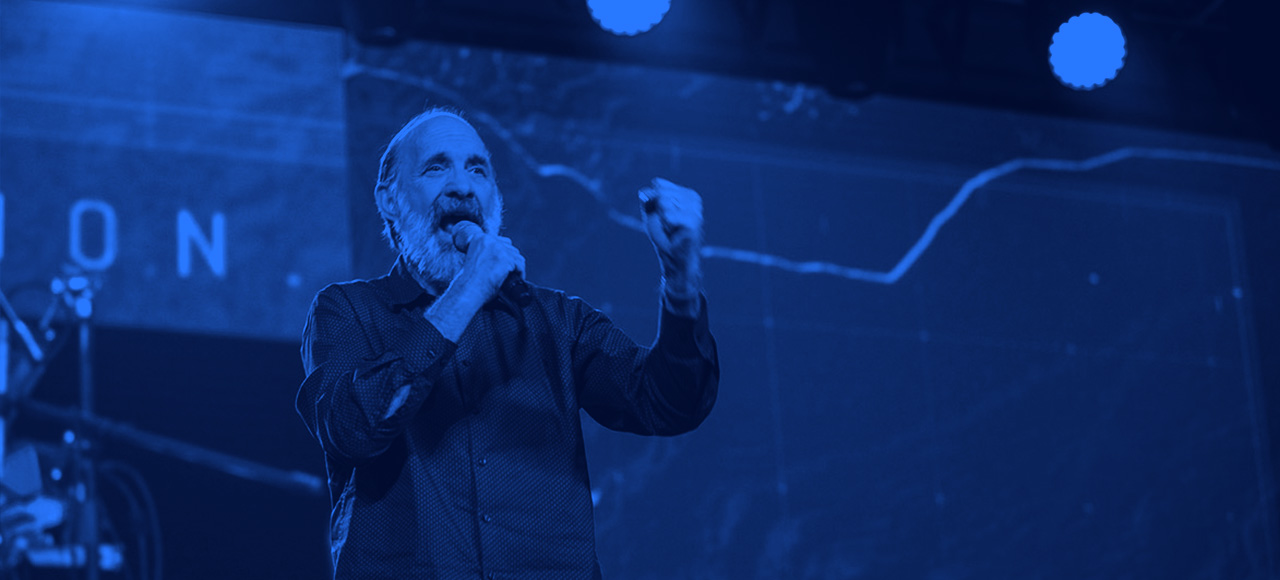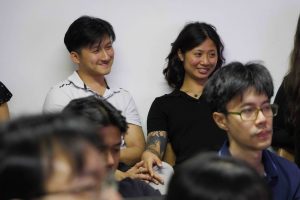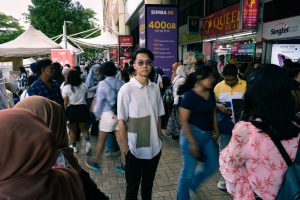I’m at Kingdom Invasion, a mass evangelism conference that is in its sixth year running. On its website, the event is described as a platform to activate believers and churches to “take up the Lord’s mandate” to “bring the Kingdom of God into our world”. The conference also “acts as a catalyst for the prophetic destiny of the nations around Singapore”, fulfilling the prophecy of prominent American evangelist Billy Graham that Singapore would become the “Antioch of Asia” – the theme of this year’s conference.
In simple words, it means that Singapore is destined to be the base from which the words of the gospel and humanitarian aid would spread to neighbouring countries.
A ticket for the three-day conference costs $220, with the night sermons open to the public. On Tuesday night, March 13th, during the first sermon before the event officially begins the following day, it’s full house inside the hall.
Teenagers, young adults still dressed in office attire, families with young children, and the elderly have all congregated here, all eyes and ears on the American who has come to deliver a jolting message from God.
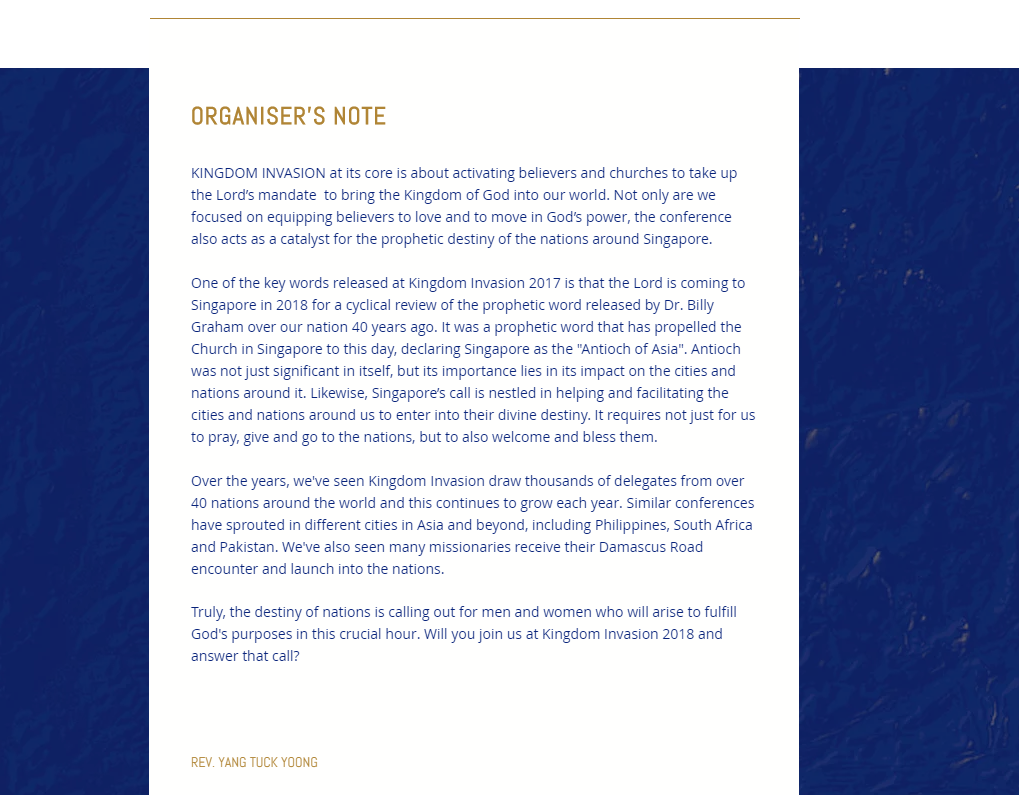
He is also known for using his influence to galvanise the anti-abortion movement in the US.
I have come to Kingdom Invasion to investigate whether Engle’s speech would be as controversial as the ones that have cemented his reputation, and especially since he’s featured prominently on the conference’s website as a guest speaker.
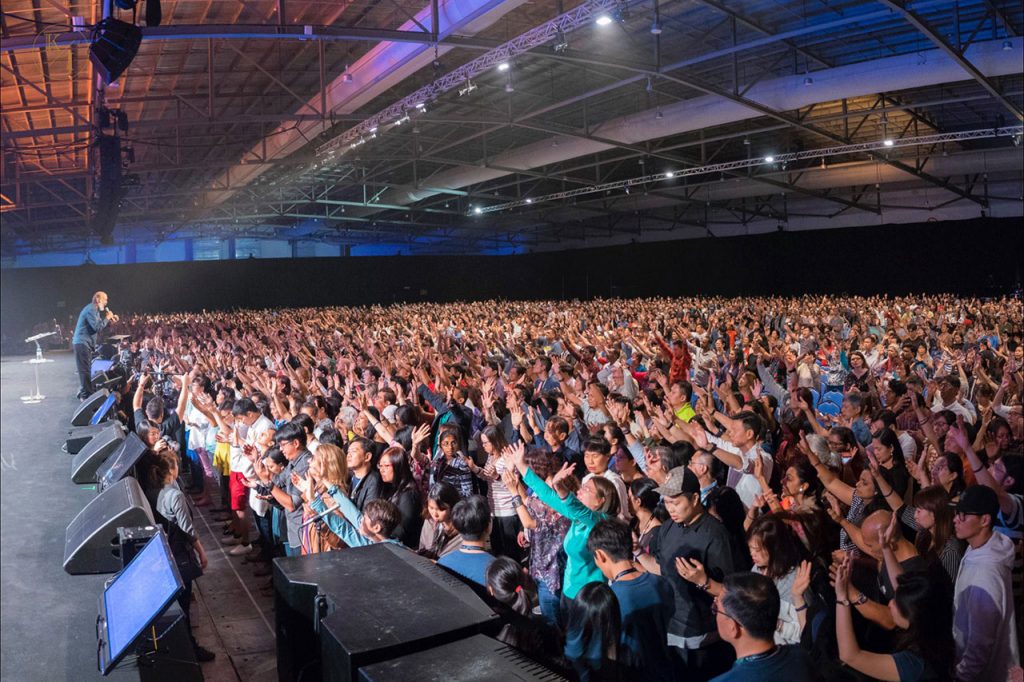
Immediately, it occurs to me, “Isn’t the mention of other faiths at a religious event sacrilegious in Singapore?” If an imam had made comments about Christianity at a Muslim conference, no doubt there would be an uproar.
Last year, an Indian imam was fined and deported to his home country for making offensive remarks about Christianity and Judaism during a Friday sermon. Yet here is Lou Engle, aggressively stoking the emotions of the audience, almost spitting as he singles out ‘Muslims’.
The context is incredibly suspicious; he seems to suggest that Islam is a threat to Christianity, and that there needs to be an urgency to curb it.
Attendees, many of them Singaporeans who have pledged themselves to be one united people regardless of religion, applaud to show their apparent affirmation for this need to counter Islam.
Engle’s contentious viewpoints do not end here. Two days later on Thursday afternoon, he urges the audience in another sermon to be united in their endeavours to end abortion, again to rousing applause.
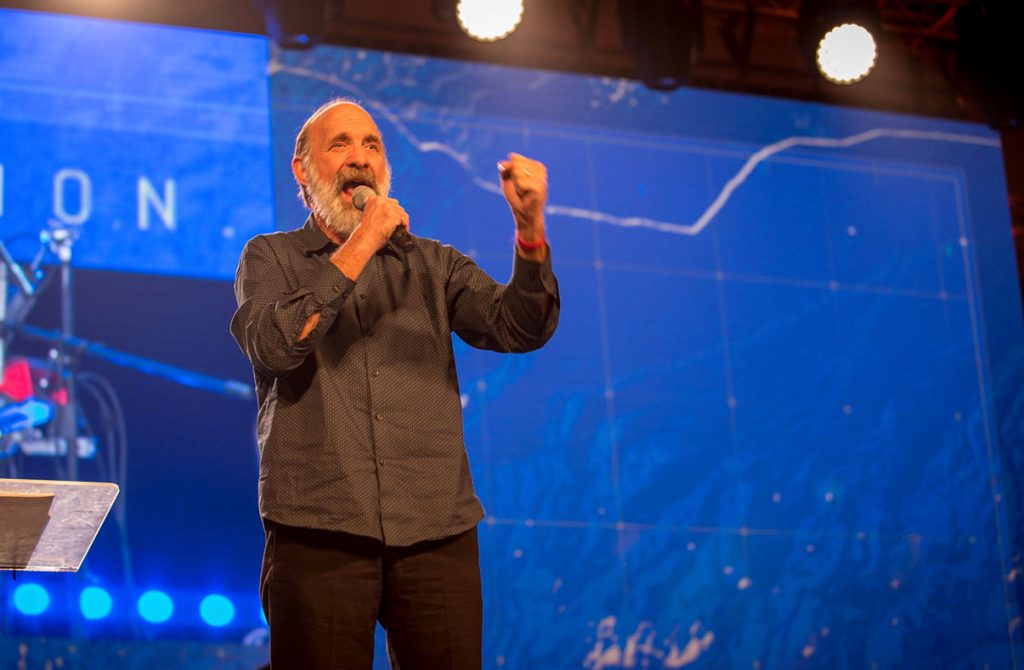
In fact, he seems fully aware of the restrictions of religious speech here, and skirts around them by recounting his experiences overseas without directly mentioning the state of affairs in Singapore.
But extremist views, sandwiched between Bible verses and interpretations, are still fundamentally extremist views, and there’s no mistaking what I hear.
He does not appear to restrain himself either, delivering his sermons in a booming, gravelly voice while rocking back and forth vigorously on stage, as though a powerful divine force has taken over him.
It’s one thing to do so at regular sermons, where such a tone of voice is often used to invoke love, compassion, and Jesus’ name. But to bring Islam into the picture is something else.
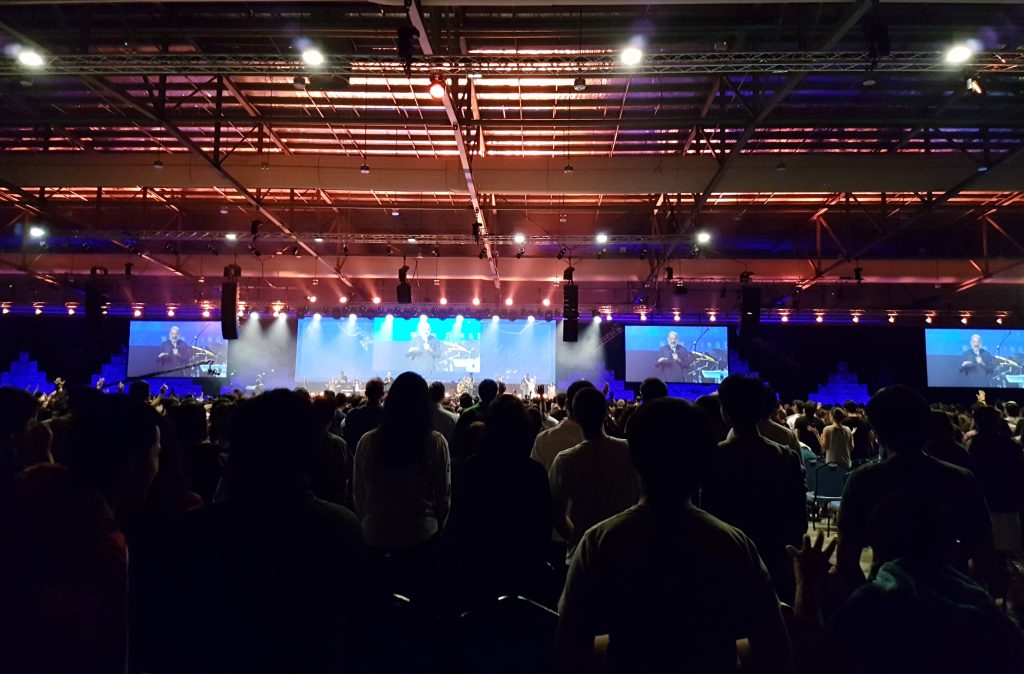
A spokesperson for the church replies that the American was referring to the rising ISIS propaganda that has become an increasing threat in Europe, including Spain.
Yet if this was indeed about ISIS, Engle should have said so that night in the Singapore Expo hall. If a “modern Muslim movement” represents radical Islamic fundamentalism, then Engle is either making a gross oversimplification or a targeted attack on Islam—both of which, I would argue, are equally dangerous.
For reference, here is an audio recording of the excerpt in question: Click to download
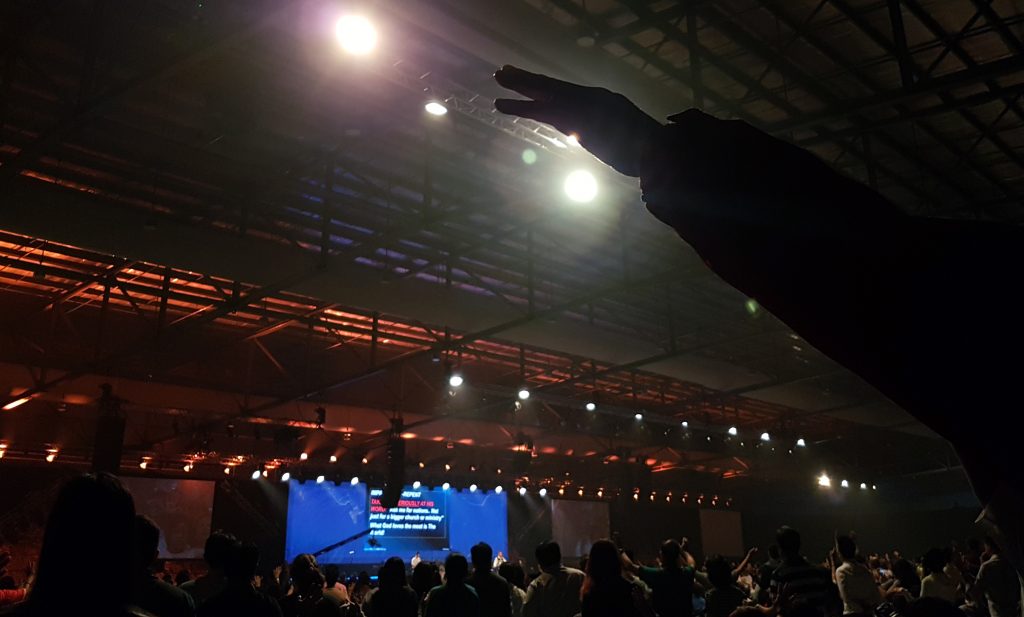
You only need five minutes on Google to open a Pandora’s box of Engle’s tendentious exploits, including supporting a bill in Uganda authorising the imprisonment of homosexuals and the death penalty in some circumstances.
It’s not as though the authorities grant permission to anyone who wishes to speak on religious matters in Singapore. Last year three foreign Muslim preachers were banned from entering Singapore over their hardline and divisive teachings that were “unacceptable” and “contrary” to the values of Singapore’s multiracial and multi-religious society.
Two foreign Christian preachers who had applied for short-term work passes to speak here were also denied entry due to their heavily Islamophobic statements outside of Singapore.
Furthermore, such entry bans can be meted out regardless of the size of the preachers’ followings here, or whether their comments were made in relation to Singapore.
So it’s perplexing that Engle, for all his controversy, has gotten a free pass. Twice.
The Ministry of Home Affairs and police did not respond to my queries on why Engle was granted a permit to speak in Singapore, given his notorious background. They also did not clarify what the rules for speaking at religious events were.
This lack of transparency and clarity is distressing, and gives the impression that double standards are exercised in the treatment of the various religious groups, especially when the authorities have lately been clamping down hard on Islamic extremism.
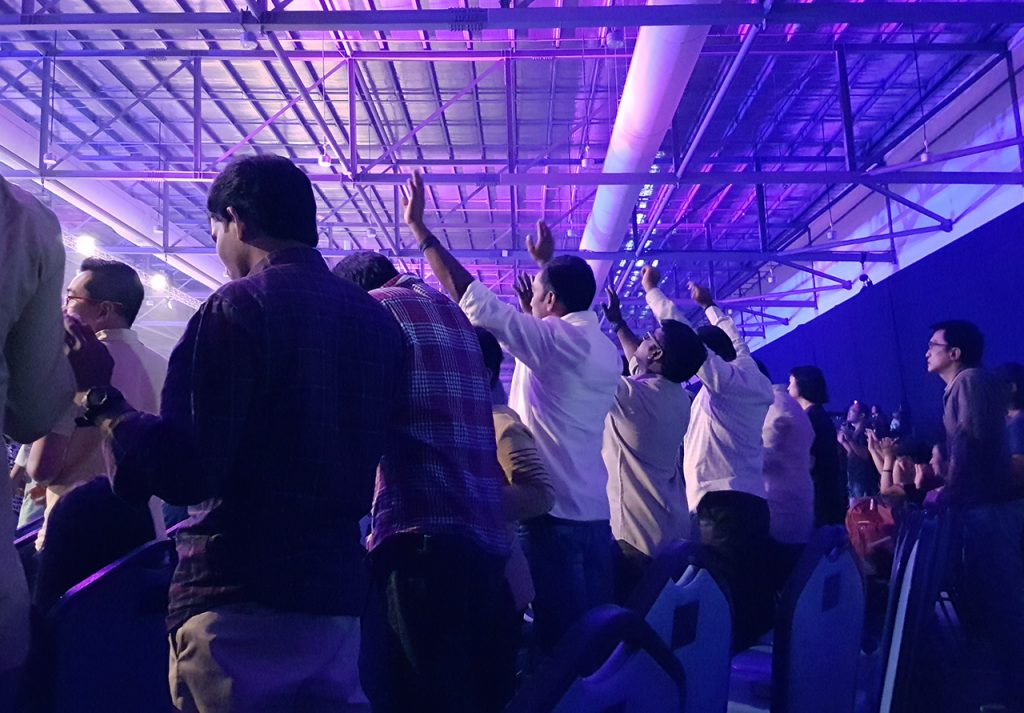
“Lou Engle’s theocratic ideas are very dangerous in Singapore. You may be able to prevent someone from coming here, but ideas do not need visas, they can still spread via social media and the Internet,” he tells me.
“I think the best way to counter dangerous ideas is by encouraging critical thinking and open dialogue. Banning them only drives these ideas underground where they will fester.”
That said, Lou Engle and his audacity to say what he spoke at Kingdom Invasion represents a larger concern: the growing influence of the Christian right in Singapore’s society.
In the US, the Christian right firmly believes in a non-separation between the church and state, and advocates for the presence of religious institutions within the government and the public sphere.
While Singapore has always maintained its secularism, the voice of the conservative Christian community has been growing louder. The homophobic movement We Are Against Pinkdot and its fervent desire to block the repealing of Section 377A of the Penal Code is primarily driven by this minority segment of the population.
Last year, we also reported on how sex education in Singapore schools is still founded on conservative Christian values.
Pastor Yang, whose church has a congregation of more than 5,000, has used his position as a religious leader to propagate his views on homosexuals. Recently, he aired his support for US president Donald Trump’s recognition of Jerusalem as Israel’s capital, saying that it was “non-negotiable”.
With his views very much aligned with that of Lou Engle’s, it’s no wonder that the latter would be invited as a guest of CSCC for Kingdom Invasion.

More than once, conference speakers emphasised the need to “transform governments”, which seems to suggest the hope for a religious takeover of our political institutions. While this, according to the other preachers, fundamentally comprises the spread of good values and doing good for the community and society to encourage governments to follow suit, Lou Engle’s speeches are more complicated than that.
He repeatedly cites TheCall’s movements in the US to encourage Singaporeans to do the same; namely, using the power of the church and prayer to effect political change. More than once, he recalls how his prayers led to then US President George W Bush appointing Supreme Court Justices who upheld the ban on partial birth abortions in 2007.
This outright contravenes the strict laws of the Maintenance of Religious Harmony (MRH) Act which governs the separation between religion and government. In its reply to my queries, CSCC stresses that the “heart and message of the Kingdom Invasion conferences are essentially to encourage and strengthen churches and believers alike to make a positive impact on society and their communities for good”.
It adds that attendees have the “common understanding that the teachings and statements made during the conference were given within a specific and spiritual context based on sound biblical principles”, which should not be taken out of context or misconstrued.
But it did not clarify the political agenda that Lou Engle and the Kingdom Conference seem to be pushing on their congregation. This does not bode well for the integrity of religious harmony in Singapore, when religious events of such a scale like Kingdom Invasion’s are able to proliferate far-out views.
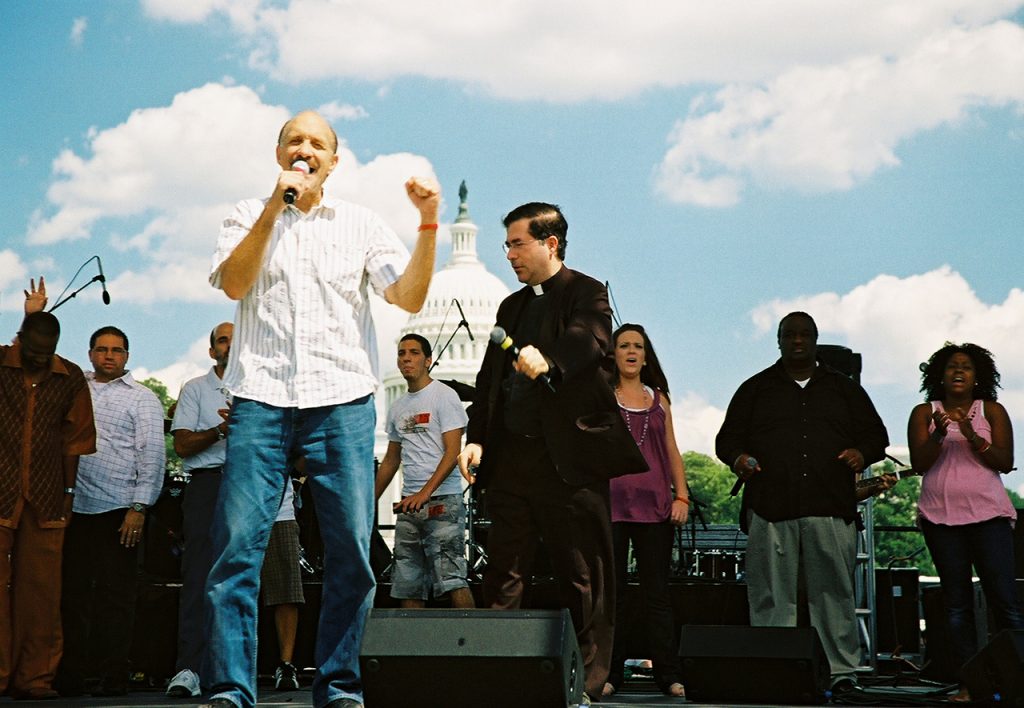
“Churchmen, lay preachers, priests, monks, Muslim theologians, all those who claim divine sanctions of holy insights, take off your clerical robes before you take on anything economic or political. Take it off. Come out as a citizen or join a political party and it is your right to belabour the Government. But if you use a church or a religion and your pulpit for these purposes, there will be serious repercussions.”
The need to maintain secularism is unequivocal in Mr Lee’s words. But lately, religion has seeped into the political fabric. The original decision by the Ministry of Communication and Information and the National Library Board to pulp a children’s book with supposed gay themes was in part motivated by the Christian conservatives.
More notably, Speaker of Parliament Tan Chuan-jin shared a Facebook post seeking divine strength after he had been asked by the prime minister to vacate his ministerial post.
MHA’s refusal to comment on Lou Engle and Kingdom Invasion also points to the possible existence of a grey area in which religious leaders are allowed to operate.
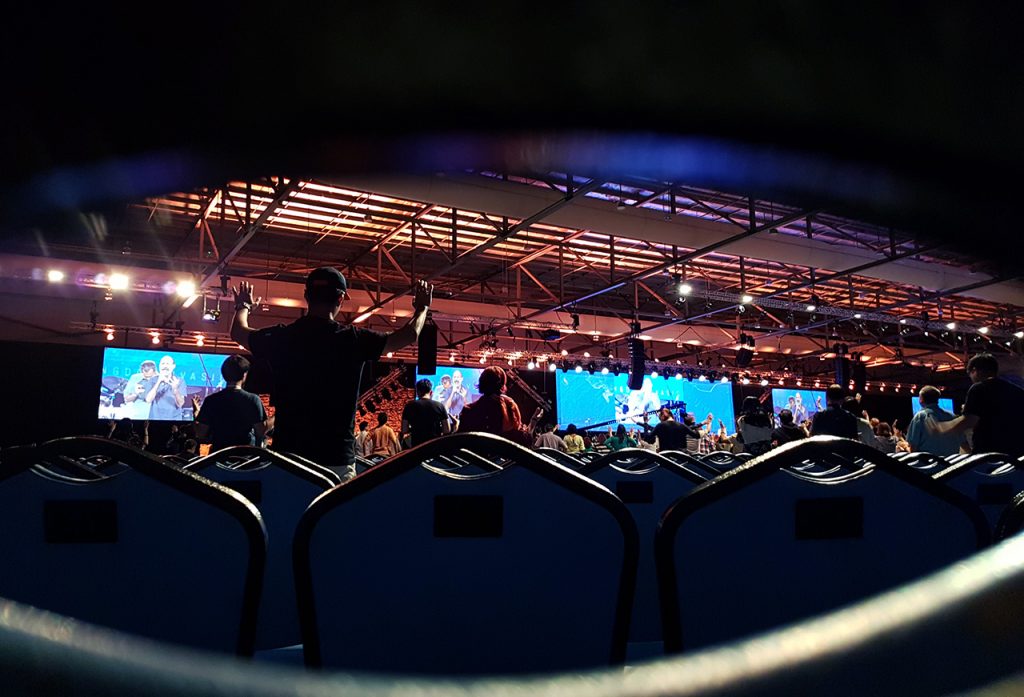
“While the Church has no political ambitions, it is profoundly concerned with issues of justice, equality and peace. Put differently, as part of the larger political community, the Church is profoundly involved in the life of that community. The Church has always spoken out against injustices and the violations of the dignity of the human being. This prophetic act, which is a part of the Church’s witness in society, can be easily construed as politically motivated.”
While CSCC could defend Lou Engle by saying that speaking out against abortion is part of a Christian’s duty, it is his strong hardline push for the agenda, as well as the apparent targeting of the Muslim community, that crosses the line.
And this could set the precedence for a more politicised religious community in a secular country, especially when preachers like Engle are still allowed to spread their radical views here.
Says Dr Mathew Mathews of the Institute of Policy Studies, who has done extensive research on race and religion in Singapore, “Singapore’s government does tap the views of religious leaders and groups, as part of efforts to update or refine its policies. The contribution of religious groups to the development of good policy in some areas has been welcomed and doesn’t cross the line, for example when religious leaders submitted their suggestions to the recent Select Committee on Deliberative Online Falsehoods.
Religious groups also contribute to attempts to transform society to be more gracious – less materialistic and more conscious of values such as mercy, kindness, generosity and love.”
But more significantly, he adds, “It is not acceptable for religious groups to work to take over institutions and force a certain kind of agenda.”
Did you attend the Kingdom Invasion conference? Let us know your thoughts on the views espoused by Lou Engle and the other speakers by dropping us an email at community@ricemedia.co

